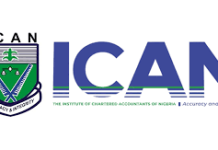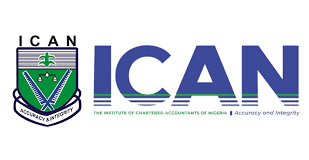About N1.32 trillion values of transactions were carried through cheque truncation in the first three months of the year.
Cheque truncation is the conversion of a physical cheque into a substitute electronic form for transmission to the paying bank. Cheque truncation reduces or eliminates the physical movement of cheques and reduces the time and cost of processing the cheque clearance system.
E-payment facts sheet from the Nigeria Inter-Bank Settlement System Plc (NIBSS) showed that the N1.32 trillion values were processed from 2.48 million volumes of transactions.
The statistics also revealed that on a daily basis, within the three months, there were 27,512 volumes of cheques with a mean value of N531, 838. The total volume of corporate cheques processed was put at 1.4 million with a value of N0.85 Trillion, while the volume of individual cheques processed was 0.55 million with a N0.21 Trillion value.
Meanwhile, through the Bank Verification Number (BVN), Nigerian banks have been able to link 45.1 million unique account owners. There are, however, 65 million active bank customers.
The total number of bank accounts in the country was put at 108.3 million, out of which 70 million are active. The statistics put the total number of current accounts at 24.2 million; saving accounts 81.1 million. There are 7.4 million corporate accounts and 99.3 million individual accounts.
In terms of web payment, there was 9.63 million volume of transactions valued at N60.74 billion from January to March.
Meanwhile, the total number of mobile money customers in Nigeria as of March 2018 stood at 1.50 million with 5,304 enrolled agents. The volume of transaction within this period was put at 15.25 million valued at N329.12 billion. There are 21licensed mobile money operators in the country and they are integrated to NIBSS for interoperability.
Unfortunately, after about five years of operation in Nigeria, mobile money has only been able to attract just one per cent penetration.
Unlike in Ghana and Kenya where penetrations have reached 40 per cent and 60 per cent respectively, only about two million of Nigeria’s estimated 198 million populations.
The implication of this is that despite the innovation that comes with it, Nigerians are yet to tap from the huge benefit it carries.
MMarketwatchers have argued that the model operated in Nigeria, which is bank-led, has not been able to impact the initiative in the country adequately. The Executive Vice Chairman, Nigerian Communications Commission (NCC), Prof. Umar Danbatta, at an interaction with journalists in Lagos, recently, lamented that mobile money is crawling at one per cent penetration in the country because it is bank-led.
According to him, another region, where the scheme is thriving has been because it was telco-led, “as such we need to re-direct our focus and ensure that appropriate model is adopted adequately.”
Danbatta said there should be effective cooperation among all the various stakeholders in the value chain that is the telecommunications operators, agents, CBN and the services providers too.
The NCC EVC revealed that discussions are on-going in the industry on how to get telcos to become super agents in the scheme of things.
“With the population, we have in the country, Nigeria should play big in the mobile money ecosystem in Africa. Only about one per cent that is about two million Nigerians is currently on the scheme. That is rather too poor. All hands must be on deck to revive that sub-sector of the economy.”
“If we are to improve on Nigeria’s digital landscape, we must revive the mobile ecosystem, which includes the mobile money scheme,” he stated.













